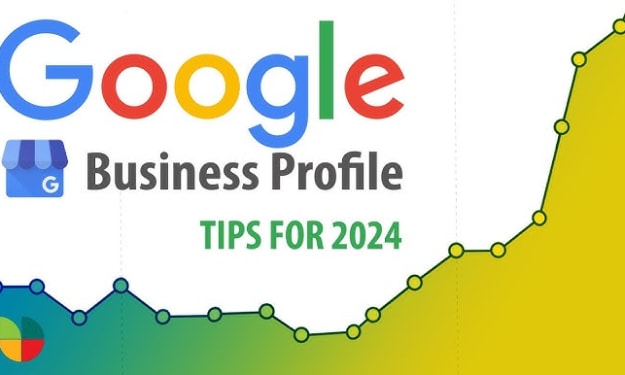How to Tell Any Story Ever
Structure of a Story

What if I told you I had the key to telling a great story no matter what? That no matter what characters, plot, and genre, your story would always turn out compelling, entertaining, and relatable? Would you want to know what it is?
The writers at Pixar figured it out a while ago, and use this key with every single movie they have made. This is their key to telling a great story.
"Once upon a time there was ___. Every day, ___. One day ___. Because of that, ___. Because of that, ___. Until finally ___."
Pixar's Rule number four of Storytelling. They have a total of twenty-two, each making up a different building block to structure a great story. We’ll just focus on this one for now. It's a template for a plot, character, and conflict. The three basic things you need for your story.
“Once upon a time there was ___.”
A character, usually the main character, Lightning McQueen, Luca, Marlin, you name it. It’s a scene of the main hero character doing something completely normal in their life. It’s basically a day in the life of your main character. Lightning McQueen at the race, Marlin taking Nemo to his first day of school, Luca herding the fish. It sets the stage for extraordinary things to happen later. This is the moment you should use to get your audience to relate with your character.
“Every day, ___.”
This is the set up of your character’s daily routine that will get interrupted later. It further sets up the audience to begin to relate to the character, and sets up a possible conflict later. Lightning McQueen getting ready for the race and setting up the stakes for winning. Nemo and his fin which makes Marlin overprotective of him. Luca and his collecting of things from the surface out of curiosity.
“One day ___.”
This is the great interruption. This is the introduction of chaos into the life of the main character. Nemo getting caught and Marlin desperately chasing after him, Lightning McQueen getting lost in Radiator springs, or Luca going to the surface. This part usually also introduces another character that aids in the hero’s journey, or hinders it unintentionally. Think about Mater, Dorey, or Alberto. The personalities of these new characters are usually completely opposite of the main character.
“Because of that, ___.”
This is technically the second wave of conflict after the first introduction of chaos. The judge of Radiator Springs who makes McQueen do community service, keeping him in Radiator Springs against his will. Uncle Ugo coming to take Luca to the depths for the summer. Dory tagging along even when Marlin says he doesn’t need her. This is the part of the story where you can introduce a multitude of conflicts between your hero and their goal. This process can be repeated as many times as you want, but Pixar suggests at least two major “Because of that” plot points. More characters can be introduced at these plot points as well.
“Until finally ___."
This is the conclusion. This is the part of the story that wraps up the conflicts, or at least most of them. Usually, the conflicts are not settled in the same way the main character wanted them to be settled. There’s a twist, or a compromise, and the main character has to make a choice. This does not necessarily mean it has to be a happy ending either. You can write the ending to fit the genre you’re working in and you can still use this template.
This template for telling a story will work with any story. As a writer of mystery, dystopian, romance, horror, and sci-fi, for adults, young adults, and children, it’s worked out pretty darn well for me.
These are just the basic building blocks of a story, and you can use it as a starting point when you don’t know how to start. It’s a good writer's block buster because of the simplicity of the sentences. There’s no preconceived notion that it has to sound like the next great American novel. It’s like writing in Comic Sans. It’s supposed to sound like a kindergartner’s diary entry. If you can’t boil down your story to these simple sentences, then you really don’t know what your story is about. But if you start here with these simple sentences, then your story will be much clearer and impactful to your audience.
About the Creator
Sarah Massey
Sarah is an animator and short film director at the birthplace of Route 66 Springfield, Missouri. A graduate of Drury University in the class of 2020, Sarah is published two fiction short stories in Drury’s Literary Magazine, Currents.
Enjoyed the story? Support the Creator.
Subscribe for free to receive all their stories in your feed. You could also pledge your support or give them a one-off tip, letting them know you appreciate their work.
Reader insights
Outstanding
Excellent work. Looking forward to reading more!
Top insight
Eye opening
Niche topic & fresh perspectives







Comments (15)
Superb way of demonstrating it. Congratulations on Top Story!
https://vocal.media/writers/some-foods-to-consume-regular-to-reduce-blood-pressure-level
Great write up! A really nice reminder of how to stay on track. Thank you!
Thank you for the fresh reminder of these building blocks This is so good for simplicity and for making storytelling possible for those who find it intimidating.
There are only a few plot devices, like musical notes, but they can be put together in an infinite number of ways. Great story
Pixar's storytelling formula: Relatable characters face chaos, conflict, and transformation. 😊
Amazing Great Top Story💖✨😉👌❤️🎉🎉🎉🎉Congratulations🎉🎉🎉🎉🎉🎉🎉🎉🎉🎉🎉
I love your advise in this writing piece. Thanks a million!!!
This was great! I’m a Disney addict. I especially love Pixar. Fiction is the most challenging thing for me to write—I’m mostly an essayist. This will definitely help me. Thanks for sharing such invaluable advice for writers, and congrats on your Top Story! 🥂
Marvelous advice!!! Congratulations on Top Story!♥️♥️💕
Hi Sarah, Thanks for this useful advice! As someone who's just starting to write fiction really, it's very helpful :)
Great advice. Congrats on the TS.
Thank you for sharing this veluable advice and congratulations!
Excellent advice! At least for breaking through, or giving you a place to start! 😊
I really needed this article! Thank you!